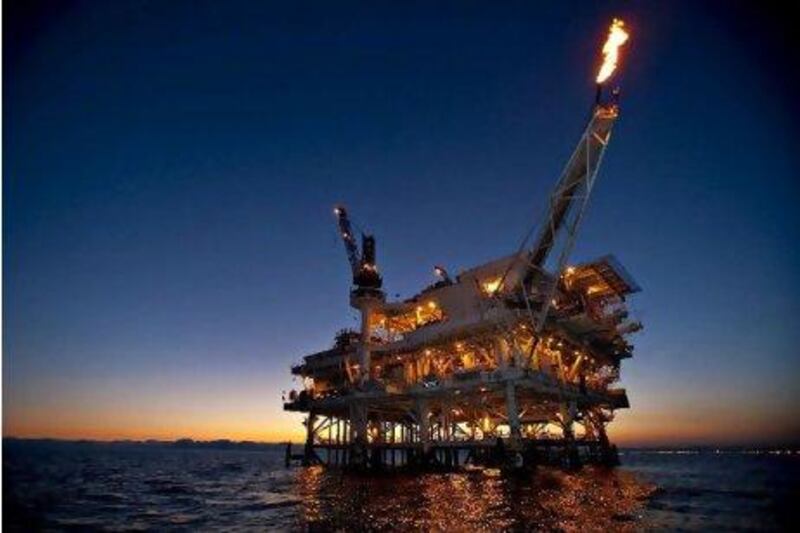The price of oil plummeted to a four-month low yesterday as the US and other major oil users said they would release 60 million barrels from their strategic reserves in a coordinated effort to thwart further global economic troubles.
The International Energy Agency (IEA), the Paris-based group that represents 28 oil-importing nations, and the US department of energy announced plans to release 2 million barrels per day (bpd) of oil next month to cover the 1.5 million barrels a day lost from the market since civil war broke out in Libya in February.
The US will provide half the volumes from its 727-million barrel crude reserve. The amount to be provided is about 1.5 days of US consumption, with Europe supplying 30 per cent in crude and refined products and the rest from Pacific nations that are members of the Organisation for Economic Cooperation and Development (OECD).
"I expect this action will contribute to well-supplied markets and to ensuring a soft landing for the world economy," said Nobuo Tanaka, the executive director of the IEA.
"We are taking this action in response to the ongoing loss of crude oil due to supply disruptions in Libya and other countries and their impact on the global economic recovery," said Steven Chu, the US energy secretary.
Oil price benchmarks from Dubai to Nigeria fell after the announcement, while Brent crude, the European benchmark, was down 6 per cent to US$107.40.
But the move failed to boost stock markets, as investors remained bearish amid the threat of a Greek debt default and a continuing gloomy outlook for the US economy.
Ali al Yabhouni, the UAE Opec governor, declined to say yesterday whether the Emirates would pump more oil.
The move by the Western nations marks a growing divide between consumers and producers. Since last month, the IEA has issued veiled threats that it would reach into its 1.6 billion barrel emergency stockpile out of fears that high oil prices could reverse the global economic recovery.
Two weeks ago, a faction of Opec member nations led by Iran blocked a move to increase the oil group's production ceiling. The failure to reach consensus within Opec led Saudi Arabia, which holds most of the group's spare capacity of 4 million bpd, to hint that it would pump an extra 1.14 million bpd starting next month.
"Apparently the IEA feels that it wasn't enough or quick enough," said Samuel Ciszuk, a regional energy analyst with IHS Global Insight in London.
But the IEA was quick to point out that it would still welcome an increase in supply from any oil producer.
"The IEA warmly welcomes the announced intentions to increase production by major oil-producing countries," the organisation said. "The IEA collective action is intended to complement expected increases in output by these producing countries, to help bridge the gap until sufficient additional oil from them reaches global markets."
Saudi supplies are also not as valued by European refiners as Libya's light, sweet crude. Analysts predict that Libya will not be able to reach its pre-conflict capacity of 1.6 million bpd for the rest of this year.
Noe van Hulst, the secretary general of the International Energy Forum, an organisation that promotes dialogue between producing and consuming nations, acknowledged concern in consuming nations about energy prices but insisted that the relationship between the two sides remained strong.
"Of course the cooperation between Opec and the IEA is alive and kicking," he said.
It is the first time the agency has released extra stocks since September 2005, when it sought to relieve fuel shortages after Hurricane Katrina. Three years later, as the price of oil climbed to $147 a barrel, the IEA declined to act.
"The IEA is likely now sensitive to the fact that they were essentially cheerleaders to the price rise of 2008," wrote Jamie Webster, an analyst at the consultancy PFC Energy.
The IEA, which was founded in response to the 1973 oil crisis as a counterpart to Opec, has only turned on its taps three times in its history. The first was during the 1991 Gulf War.
Gulf oil producers are concerned that long-term high prices could dampen demand, with Opec's in-house economists warning that sustained high prices could erase 200,000 bpd of demand.





